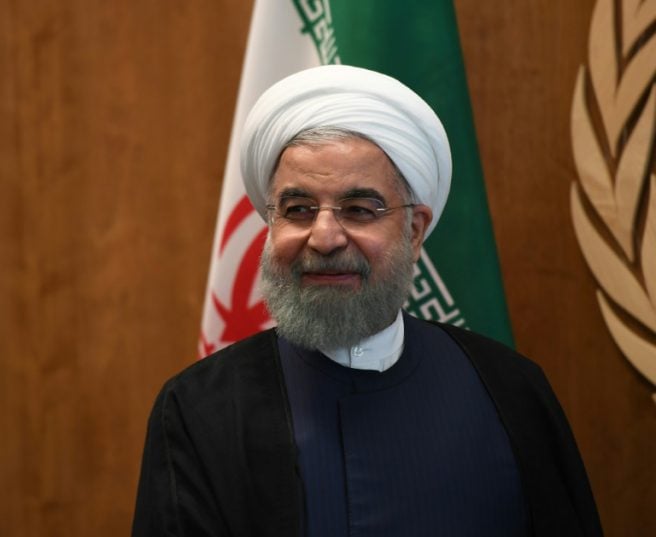OPINION: Sundowns are on a path of self-destruction
Trump has signalled he is ready to declare Iran in breach of its side of the 2015 accord — which he has branded the “worst deal ever” — as early as next month.
And if the White House “decertifies” Iran’s compliance, this would open the way to the US Congress reimposing sanctions and perhaps provoke Iran to itself pull out.
The other world powers — France, Britain, Germany, China and Russia — who signed the accord continue to see it as the best way to prevent Iran from building a bomb.
But Washington argues that by pursuing a banned missile program and fomenting militant violence in its region, Iran is in breach of the spirit of a weak deal.
Not all US officials share Trump’s total antipathy to the pact, but they want stronger controls on Iran’s ability to resume weapons development when it begins to expire.
– Sunset clause –

Iranian President Hassan Rouhani is also at the United Nations General Assembly and is expected to defend Tehran’s compliance with the nuclear deal
America’s European allies are desperate to save the deal and — as world leaders gathered on Monday in New York for the UN General Assembly — France spoke out.
Foreign Minister Jean-Yves Le Drian warned that scrapping the “essential” agreement would launch a regional arms race between “neighboring countries.”
But he also said: “France will try to persuade President Trump of the importance of this choice, even if it can be completed by work for after 2025.”
Le Drian was speaking ahead of a meeting between Trump and French President Emmanuel Macron, who also suggested in a speech last month that the accord could be improved.
Under the deal, limits on Iran’s uranium enrichment will begin to expire in 2025 under “sunset clauses” and critics have said this is the weakest part of the deal.
“It’s essential to maintain (the agreement) to prevent a spiral of proliferation that would encourage hardliners in Iran to pursue nuclear weapons,” Le Drian said.
Under the nuclear deal, Iran surrendered much of its enriched uranium, dismantled a reactor and submitted nuclear sites to UN inspection.
For their part, Washington and Europe lifted some sanctions related to Iran’s nuclear program, while retaining others tied to its “destabilizing” actions.
Hawks in Washington, with winks from Trump and some in his inner circle, are calling for tougher sanctions on Iran’s ballistic missile program.
These, they argue, would not breach their side of the nuclear-only deal.
Meanwhile, Trump’s top foreign policy officials, UN Ambassador Nikki Haley and Secretary of State Rex Tillerson, have upped their rhetoric.
Haley went to Washington this month to deliver a speech laying out the case for Trump to find Iran in breach of the deal when he reports to Congress on October 15.
Tillerson is reportedly not convinced that destroying the accord is the best way forward, but tougher measures from allies would help him make this case to Trump.
– Iran, North Korea top UN agenda –
Iran and North Korea will dominate the annual gathering of world leaders, which opens on Tuesday with a series of addresses by Trump and Macron among other leaders.
Iranian President Hassan Rouhani is scheduled to speak on Wednesday.
Tillerson will join his Iranian counterpart Mohammad Javad Zarif on Wednesday for a meeting of the so-called E3+3 on the nuclear deal, chaired by the European Union.
Turning to North Korea, Le Drian said “very strong” pressure from sanctions would compel leader Kim Jong-Un to negotiate an end to his missile and nuclear programs.
“Military action is not required,” said the foreign minister. “To bring North Korea to the negotiating table, the only possible way is to apply very strong pressure.”
The UN Security Council last week imposed a new raft of sanctions on North Korea after it carried out its sixth and most powerful nuclear test.
The council will meet on Thursday to discuss ways of enforcing sanctions, which depends largely on cooperation from China, North Korea’s largest trading partner.
Download our app and read this and other great stories on the move. Available for Android and iOS.